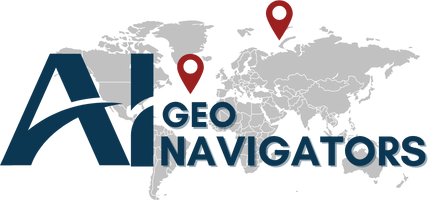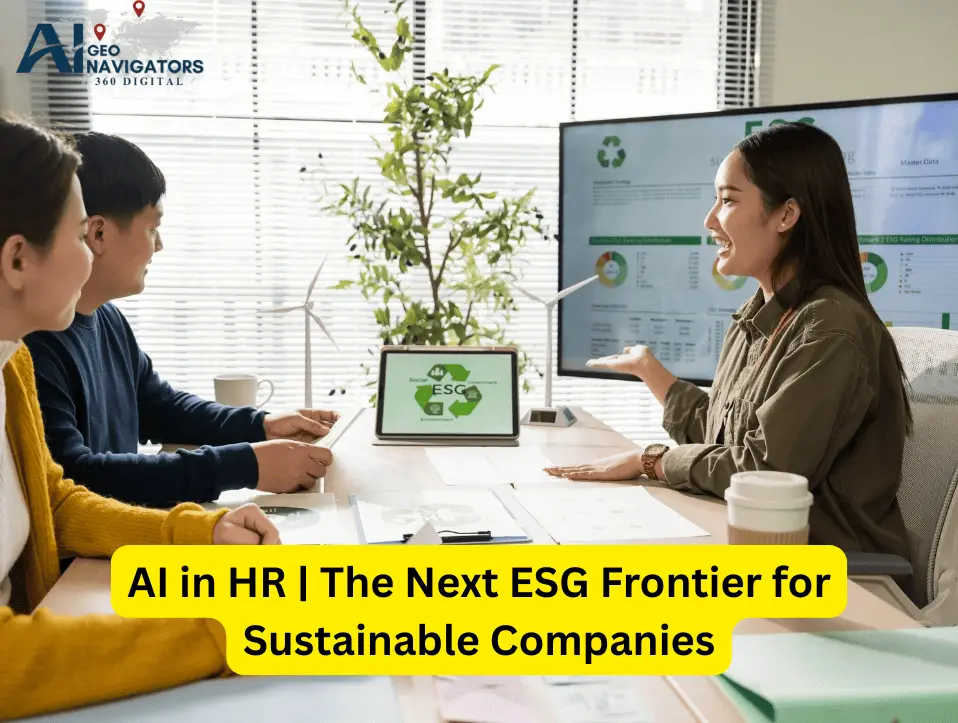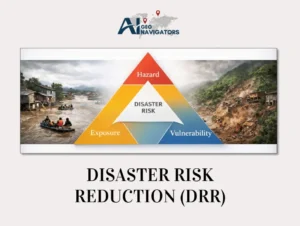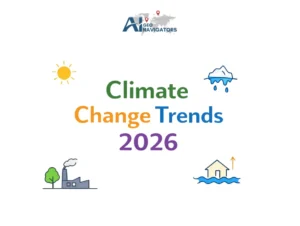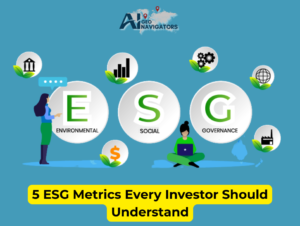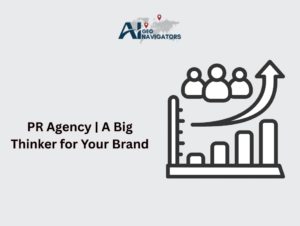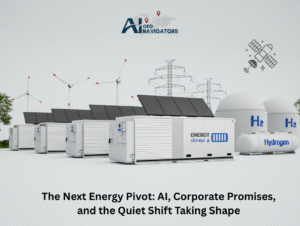Whenever we discuss ESG (Environmental, Social, and Governance), the discussion tends to be quite biased towards climate and the environment: carbon footprints, the use of renewable energy, protection of biodiversity, and net-zero plans.
These are of high priority, particularly to climate-oriented businesses. But it is not only the E in ESG that is influencing governance, accountability, and trust. Increasingly, the systems we rely upon to manage people define the position of governance, accountability, and trust, particularly those based on artificial intelligence (AI) in HR.
In our company, AI Geo Navigators, which is focused on assisting organizations navigate through ESG risk with the help of AI, GIS, and data analytics, we observe a definite shift: AI-driven HR systems are now an ESG frontier, and sustainable companies must be prepared to regulate them. This is not efficiency alone but fairness, compliance and ensuring that the management of the workforce is aligned with the overall sustainability agenda.
Table of Contents
ToggleWhy AI in HR matters for ESG
The use of AI is gaining fundamental penetration within the HR departments all over the world. Algorithms are currently used in the hiring process, performance appraisals, employee surveys, and workforce planning, all processes that directly affect the careers of individuals.
Recent research shows that 44 per cent of organizations have been using AI in recruitment and talent acquisition. This number shows the prevalence of the adoption of AI in HR. However, adoption is not the ESG problem. The real quandary is the way companies manage these systems to make them consistent with environmental sustainability, social equity, and sound governance practices.
As an example, a hiring process made smoother by an AI model can be more efficient, although when it has the effect of eliminating applicants of underrepresented groups, there is a governance liability here. On the same note, although AI chatbots in HR can help save time, they can also create biases that negatively affect employee trust. These problems go beyond HR – they spill over to the S (Social) and G (Governance) pillars of ESG so AI in HR becomes an organizational responsibility.
The ESG implications of AI in HR
Environmental (E)
- The AI infrastructure has an environmental footprint. Algorithms are time consuming and the process of training and running them is energy consuming thus adding to carbon emission. Companies’ digital carbon footprint of HR AI systems is commonly neglected; the companies are usually concerned with supply chain emissions or energy efficiency in their operations.
- In the case of climate-oriented organizations, the energy usage of AI becomes counterproductive to the net-zero policies at large. A sustainable firm should be able to realize that digital transformation possesses its climate price. ESGs should include tracking and reporting of the environmental impact of AI systems, including the ones in HR.
Social (S)
AI in HR has the most significant impact in the social aspect of ESG. Consider these areas:
- Bias & fairness: AI systems have the potential to reproduce past injustices in data without prior intent. Indicatively, an artificial intelligence that has been trained on previous hiring practices might discriminate against some demographics, thereby lowering the level of diversity in the workplace.
- Transparency & Trust: Employees desire to understand the impact AI may have on their career development. The presence of secret processes of decision-making may harm morale and instill a mistrust culture.
- Equity & Inclusion: To be truly sustainable, it is necessary to make sure that HR AI is not used to fight diversity and inclusion objectives. When a company claims to be a climate action-taker, yet does not perform well on social fairness, then there is a risk of credibility gaps within its ESG reporting.
Governance (G)
The risks and responsibilities of AI in HR meet at the governance:
- Accountability: Do we have anyone to hold accountable when an AI system delivers biased or unfair results? In the absence of direction, accountability may slip through HR, IT, and leadership cracks.
- Audit and compliance: Very few organizations routinely audit their HR AI systems. This leaves governance blind spots that may lead to lawsuits and negative reputations to companies.
- Regulatory risk = Laws are close behind. To take a case in point, the AI in HR is categorized as a high-risk area by the EU AI Act, and the regulation and transparency are not only necessary but a legal obligation. Those organizations, which do not adapt, may endanger their compliance with fines or the mistrust of stakeholders.
Why Climate Oriented Companies must care
Companies that are climate driven tend to dominate in the E of ESG. They are good at releasing comprehensive carbon reports, making ambitious net-zero targets, and biodiversity planning. But ESG is indivisible. Here’s why these matters:
- Investor confidence: Investor trust Investors are now considering all three pillars, rather than only the environmental performance, of ESG funds and socially responsible investors. Poor HR governance may destroy good climate credentials.
- Risk layering: Poor HR AI governance may put organizations at risk of lawsuits, reputational damage, and penalties. These threats have potential to derail years of climate and sustainability leadership efforts.
In a word: an environmentally friendly company cannot afford not to deal with AI governance in HR.
How AI Geo Navigators helps
At AI Geo Navigators, the thinking of ESG is not just the environmental measurements, but it is the systems within organizations that are formed inside. We understand that sustainable businesses cannot just quantify the footprint of their climate, but they should ensure that their inner data and AI have responsible governance as well.
We have customized our services to this challenge:
- ESG Dashboards & Reporting Tools: We build dashboards that combine new HR/AI KPIs, i.e. fairness audits, inclusion results, and digital carbon footprints. This will make sure that HR data is a meaningful contribution to ESG strategies.
- ESG Data Mapping & Analytics: We assist companies in bias auditing HR/AI systems, mapping the risks, and correlating findings with accepted ESG standards. This brings in transparency and develops trust with the stakeholders.
- Sustainability Reporting (GRI, ISSB, CSRD): We also make sure that our disclosures are not limited to environmental measures and indicators but that they also include social, and governance practices related to AI in HR, in accordance with global reporting standards.
The comprehensive treatment of ESG makes AI Geo Navigators offer climate-related organizations the chance to become a true sustainability leader, a powerful force on not only emissions but also on equity, responsibility, and integrity.
Conclusion
The next ESG frontier is AI in HR and sustainable companies need to take action. Although climate has always been a center of interest, social and governance risks of AI-based HR systems are no less significant.
In AI Geo Navigators, we assist organizations to broaden their ESG strategy to accommodate these new challenges. As experts in dashboards, data analytics, and sustainability reporting, we will make sure that companies do more than trace their carbon footprints by ensuring that they focus on fairness, transparency, and governance in the era of AI. To the businesses that are serious about being sustainable, AI in HR should be regulated now, not tomorrow. They can create resilience and ensure stakeholder confidence, as well as lead in every aspect of ESG by acting today.
